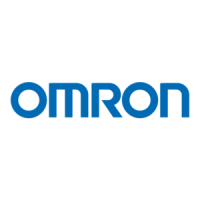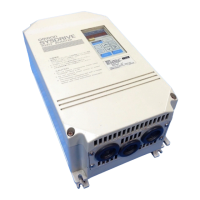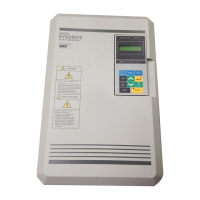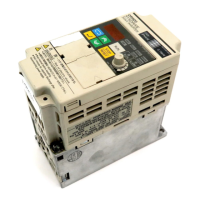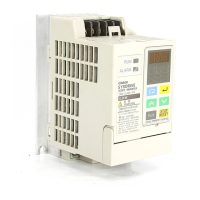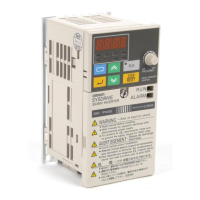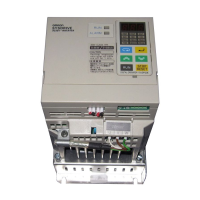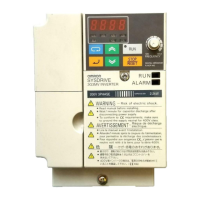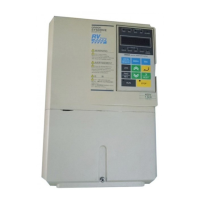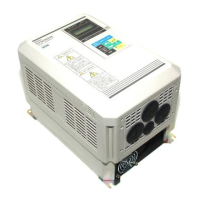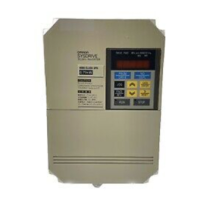.
Inverter model
3G3SV-
-E
B2037B2022B2015B2007B2004B20023-phaseInverter model
3G3SV-
-E
BB037BB022BB015BB007BB004BB002Single-phase
Operation
conditions
Input
signals
Operation signal Forward operation/reverse operation by individual com-
mand
External fault Output stops by external fault input.
Reset Releases protection while the function is operating.
Multifunction set-
ting
Possible to set max. 9 speed
Multifunction input
selection
Multifunction contact input: two of the following signals
available to select.
Multispeed command 3, jog operation, accel/decel time
select, 3 wire sequence, external coasting stop, speed
search
Output
signals
Operation state
(photocoupler out-
put)
Multifunction contact output: two of the following signals
available to select.
During running output, zero speed, frequency agree, out-
put frequency ≥ setting value, during overtorque detection
Fault contact NO/NC contact output
Built-in function The following set-up is available: frequency reference bias/
gain, upper/lower frequency limit, DC braking stop current
at start, s-curve characteristics, torque boost, frequency
meter calibrating gain, auto reset/restart operation
Monitor
display
7 segments, 3-dig-
its display section
Displays output frequency and contents at protective func-
tion operation.
function
Digital operator
(optional)
Displays setting frequency, output frequency, output cur-
rent, rotating direction, and the contents at protective func-
tion operation.
Analog output mon-
itor
Analog output (0 to 10 VDC). Possible to select output fre-
quency or output current.
Protective configuration Open chassis
Cooling method Self-cooling Forced cooling
Weight lb (kg) 4.4 (2) 4.4 (2) 6.6 (3) 6.6 (3) 13 (6) 13 (6)
Environmental
Location Indoor (protected from corrosive gases and dust)
Conditions
Ambient temperature +14
to 122
F(--10
to +50
C) (not frozen)
Storage temperature
(see note 3)
--4
to 140
F(--20
to +60
C)
Humidity 90% RH (non-condensing)
Vibration 0.6 G
Note 1. Ourstandard4-polemotor isusedformaximumapplicable mo-
tor output.
2. Allowable values for the applications not requiring overload.
3. Temperature during shipping (for short period).
Section 1-8
